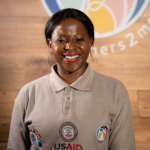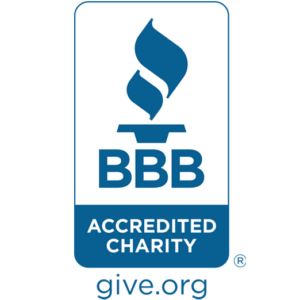Celebrating International Day of the African Child
Sunday 17 June marks the International Day of the African Child, a day where we at mothers2mothers (m2m) take a moment to reflect on the critical importance of education for our children. This day honours the memory of the brave students who participated in the 1976 Soweto Uprising in South Africa, demanding their right to quality education.
Their courage reminds us of the ongoing need to ensure that every African child has access to education that equips children with the knowledge and skills they need to lead healthy lives. Educated individuals are more likely to understand health information, make informed decisions, and adopt healthier lifestyles. They can better access health care services, understand medical instructions, and adhere to treatments.
Schools provide a safe environment where children can learn about hygiene, nutrition, and sexual health, which are essential for their overall development and future well-being. Regular school attendance also correlates with better health outcomes, including reduced malnutrition and higher vaccination rates.
 Education is a powerful tool in breaking the cycle of poverty. It opens doors to better job opportunities and higher incomes, benefiting not only the individual but also their families and communities. By reducing dependence on aid and fostering sustainable development, education paves the way for economic empowerment.
Education is a powerful tool in breaking the cycle of poverty. It opens doors to better job opportunities and higher incomes, benefiting not only the individual but also their families and communities. By reducing dependence on aid and fostering sustainable development, education paves the way for economic empowerment.
Gender disparities in education remain a significant challenge in many parts of Africa, with less than half of girls in sub-Saharan Africa completing lower secondary school as of 2021 data Girls often face barriers such as early marriage, cultural norms, and economic constraints that prevent them from attending school. At m2m, our community health workers play a vital role in advocating for, and supporting, education. We work closely with families, schools, and local authorities to identify and address the barriers to education. We provide health education to children and parents, emphasising the importance of regular school attendance and a healthy lifestyle. We also collaborate with other stakeholders to ensure that schools are safe and conducive to learning, with access to clean water, sanitation, and health services.

Esther Mamba, mothers2mothers Spokeswoman and community health worker from South Africa.
m2m community health worker Esther Mamba’s own journey is a testament to the power of education and support. Esther met m2m after she was diagnosed with HIV during her first pregnancy. Due to the support she received, Esther was inspired to become a Mentor Mother herself and has steadily climbed the ladder at m2m—and today works in Mpumalanga as a Linkage Assistant, where her role includes identifying orphaned and other vulnerable children living with or exposed to HIV in her community. Esther also ensures that the children she supports receive health care services, remain in school, and are linked to other social services to ensure they get any additional support needed to thrive.
Esther highlights a crucial issue in her community, noting, “In my community, we have one close by high school. That high school has been turned into a Science, Technology, Engineering, and Mathematics (STEM) school, meaning all the children who are unable to do STEM subjects are unable to go to that school. There is no other school nearby, so children face a long and costly journey to attend another school. This will cause a lot of children in our community to drop out of their education.”
As Esther eloquently puts it, “Someone once said that seeds of today are flowers of tomorrow. On this day, we remember the African child that fought for better education. We can raise awareness by doing community dialogues, engaging relevant stakeholders that are in line with health care and education. We must also teach communities about children’s rights and responsibilities and teach our children to be vocal and to express their feelings about injustices and harmful practices such as child neglect and labour.”
On this International Day of the African Child, let us renew our commitment to making education accessible to all children. Governments, non-governmental organisations, communities, and individuals must work together to remove the barriers to education and create an environment where every child can thrive.























